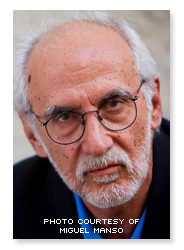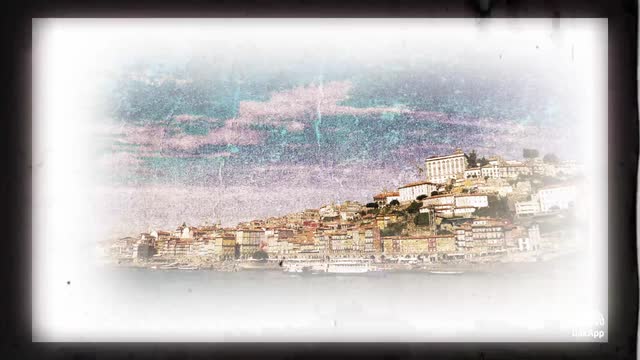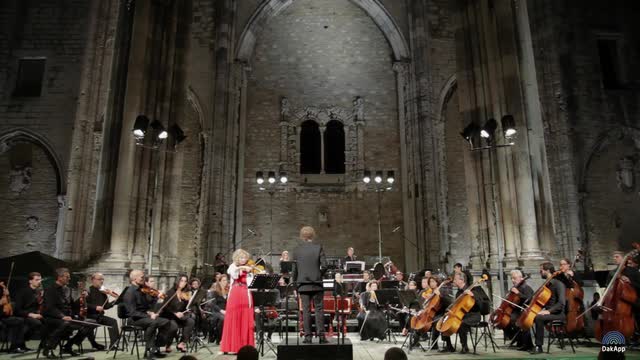
The Portuguese composer, musician and essayist António Pinho Vargas was born in Vila Nova de Gaia in 1951, and was awarded the Municipality Medal of Cultural Merit in 1998. He was decorated with the Infante D. Henrique commendation by the President of the Republic in 1995. He graduated in History from the Faculty of Letters of the University of Porto, has a piano degree from the Porto Conservatoire and a Masters in Composition from the Rotterdam Conservatoire. He has taught composition at the Lisbon School of Music since 1991 and has been a researcher at the Centre for Social Studies of the University of Coimbra since 2006. He finished his PhD in Sociology of Culture at the University of Coimbra in 2010 with the dissertation Música e Poder. António Pinho Vargas recorded ten jazz albums as a pianist/composer, including the two double discs Solo (2008) and Solo II (2009), and Improvisations (2011), recorded live at the Instituto Superior Técnico in Lisbon. He has composed four operas, a Requiem and two sacred oratorios, ten orchestral pieces, eight works for ensemble, twenty chamber works, including three string quartets, seven pieces for soloists and music for five films. His music has been performed by the Arditti Quartet, the Smith Quartet, the Remix Ensemble, the Royal Scottish Brass Ensemble, and the cellists Annsi Kartunen and Pavel Gomziakov, among others. He has received awards for best music at film festivals twice, for Tempos Difíceis (1986) by João Botelho, and Cinco Dias, Cinco Noites (1994) by José Fonseca e Costa. His works have been performed in many European countries, as well as in the United States, Australia, China, Indonesia and South Korea. Highlights of his approximately fifty pieces include the operas Édipo, Tragédia de Saber (1996), Os Dias Levantados (1998) and Outro fim (2008), the string quartets Monodia, quasi un Requiem (1993) and Movimentos do subsolo (2008), the Suite for Solo Cello (2008), Estudos e Interlúdios for six percussionists (2001), the orchestral works Acting Out (1998), A Impaciência de Mahler (2000), Graffiti [just forms] (2006), Six Portraits of Pain for solo cello and ensemble (2005), Um Discurso de Thomas Bernhard for narrator and orchestra (2007) and Onze Cartas for orchestra, three pre-recorded narrators and electronics, Requiem (2012) for choir and orchestra, and Magnificat (2013), also for choir and orchestra. In 2014 Pinho Vargas was awarded the Prize SPA Autores for Magnificat. His books include Sobre Música: ensaios, textos e entrevistas (Afrontamento, 2002), Cinco Conferências sobre a História da Música do Século XX (Culturgest, 2008) and Música e Poder: para uma sociologia da ausência da música portuguesa no contexto europeu (Almedina, 2011). In 2012 he was granted the José Afonso Prize for the album Solo II and the prestigious 11th University of Coimbra Award.
| Title | |
| FESTIVAL CANTABILE (Classical Documentary, 2016) | |

|
FESTIVAL CANTABILE (Classical Documentary, 2016)
Artists:
Faust, Isabelle -- Lima, Paulo Gaio -- Mazzeo, Massimo -- Pinho Vargas, Antonio -- Poppen, Diemut
Label/Producer: DakApp |
| PINHO VARGAS, A.: Viola Concerto (Poppen, Gulbenkian Orchestra, Wierzba) | |

|
PINHO VARGAS, A.: Viola Concerto (Poppen, Gulbenkian Orchestra, Wierzba)
Composer:
Pinho Vargas, Antonio
Artists:
Gulbenkian Orchestra -- Poppen, Diemut -- Wierzba, Jan
Label/Producer: DakApp |
